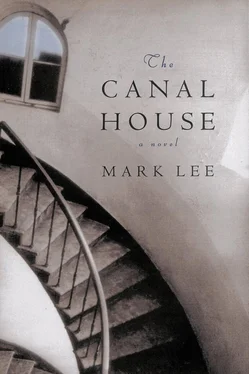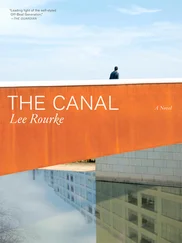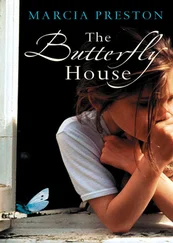I loved going to restaurants because I was such a bad cook. I was in awe of flaky pie crusts and light soufflés, though waiters and waitresses made me uncomfortable. I always felt passive and trapped at the table, smiling politely while some stranger brought me a plate. I wanted to stand up and walk into the kitchen, gossip with the cooks and the bus-boys, see what kind of fish was in the refrigerator.
I was reading about new treatments for malaria and drinking my second glass of wine when Richard’s phone calls began to arrive. The bald headwaiter was like a military courier, delivering one folded piece of paper after another. During the last year, I had managed to hold on to the last shreds of my independence: I didn’t live with Richard when I was in England and I refused to carry a cell phone. Neither choice was practical, but I wanted to keep a thin demarcation between our two lives. Richard carried a satellite phone and something called a Black-Berry that allowed him to read his e-mail in the bathtub. “You can always switch it off,” he explained, but I didn’t want to be bothered. When I was away from the telephone, I was out, couldn’t be reached, and would be back sometime later. So now, instead of talking to me directly, Richard’s messages were conveyed through the headwaiter. Mr. Seaton had left his office. Mr. Seaton’s car was turning onto Brompton Road. Mr. Seaton was less than five minutes away.
Finally, Richard appeared in jeans and a camel-hair jacket. He dressed like a student or a young lecturer, in clothing that always looked slightly rumpled. Carrying a shopping bag, he followed the headwaiter over to the table. Richard wasn’t famous enough to get immediate recognition from the public. But as he walked across the restaurant you could see people registering the thought Oh, that’s the man on television. What’s his name? Seaton. Richard came forward in a rush, leaned down and kissed me on the cheek. “Julia, darling. I am sorry. Late again.”
“This wine’s quite good,” I said, closing the book. “You should try it.”
“Bring us a bottle,” Richard told the headwaiter, then reached into the bag and came up with a present tied with gold ribbon. “I got something for you,” he said. “Little going-away gift.”
It was a leather Gucci toiletry case about the size of a purse. Inside were thick, frosted glass bottles filled with shampoo and hair rinse, and special 45 SPF makeup for the African sun. I knew that Richard hadn’t gone into a store and purchased it himself. His employees handled virtually all the practical details of his life—the dog-walking, shoe-polishing, chip-the-ice-off-the-windscreen moments of drudgery. I could tell that the gift had been chosen by a woman who had given a great deal of thought to what she would require in the middle of an African refugee camp.
“Do you like it?” Richard asked.
“Yes. It’s marvelous. Just what I needed.”
Of course, I didn’t need any of it. Over the years I’d learned to boil my necessities down to two traveling bags: my Practical Bag, for medical equipment, travel documents, and money; and my Personal Bag with a toothbrush, one hairbrush, a mosquito net, an ankle-length cotton dress for meeting officials, four T-shirts, two pairs of pants, a sweater, underwear, and a few books. There wasn’t enough room for the Gucci case in either bag. I would have left it in London, but Richard noticed everything. At some point, he would realize that the case wasn’t in my tent. If it wasn’t there, then it was the wrong gift, and Stacy or Jennifer or any one of the other young women who smiled at me whenever I dropped by Richard’s office might suffer career damage for the rest of her life at the Riverside Bank.
I ended up taking my sweater out of the Practical Bag and forcing the case inside. It annoyed me to have to think about the sweater, carrying it along, not losing it on the plane flight to Kenya, but the moment I crossed the border into Uganda all minor problems were blasted away by the immediate situation. That was one thing that outsiders didn’t understand about working in a refugee camp. Yes, you were going to a place where people were sick and starving, where nothing worked and you might be in danger. But everything was simpler there: you never thought about how you looked and what you should wear, you never had to deal with rush hour and overdrafts at your bank, there were no hospital administrators criticizing how much time you spent with a patient. There were so many ambiguities back home, so many compromises. Life was difficult at a refugee camp, but easier, too.
The only thing I really needed to bring along was the blue toothbrush I had purchased before I left for college. It was worn down and completely unusable, but I always made a point of placing it next to my cot or my sleeping bag. I didn’t own a flat back in London or a house in the country, didn’t have furniture in storage or something permanent to return to. My mother once said that home was where your heart remained, but I carried my heart with me and I kept it fairly well protected. Home was where I placed the toothbrush and where I turned out the light. And now, of course, home included a Gucci toiletry case.
OUR CAMP WAS SET up in the middle of a savanna plain dotted with termite mounds and thornbushes. Kosana had once been a destination for the migrating tribes that lived in the area, marked by a dead acacia tree and a well with watering ditches for cattle. The well went dry about two days after I arrived. We set up the tents, drilled our own wells, and waited. After a week or so, small groups of refugees appeared on the horizon. The dust and heat distorted the air and people seemed to emerge from the earth, then grow larger as they came closer. When they reached Kosana they would stop at the outskirts of the camp, like shy children who had just arrived at a birthday party. I would walk out and invite everyone to share our food and shelter.
The refugees were Karamojong, a general name for the six subtribes that lived in the border region between Sudan and Uganda. They were a tall, slender people with dark black skin. The women wore ragged clothes and copper bracelets that clicked together whenever they moved their arms. They smiled at me but didn’t meet my eyes. Whenever I turned around quickly, I saw them staring at my clothes and hair. I obviously wasn’t a man, but I wasn’t what they considered a woman. A third sex, perhaps, a good witch with the power to save their children.
The male Karamojong also thought I was strange, but they were so proud and imperious in their manner that it was difficult to know what they were thinking. Most of men were naked except for the shuka cloths they draped over their shoulders. I recall some pop psychologist saying that we wore clothes to impress and dominate each other, but there was nothing more intimidating than a naked man, two meters tall, with a rifle slung over his shoulder. But though the Karamojong were harsh to their enemies, they indulged their children. All the adults played with them, touched them, spoiled them completely as if anticipating the pain of their adult life.
They were dependent on their cattle, following the herds across the grasslands and protecting them from lions and raiders. The young men sang songs to their favorite cows and decorated their long, curving horns. I had brought two Irish nurses with me, both of whom had grown up on farms. One afternoon, Fiona was talking to an elderly Karamojong man about his life back in the Sudan. “My father had cows, too,” she said. The old man didn’t seem to understand her English so she made two little horns with her forefingers. “You know. Cows.” Fiona smiled and mooed, the sort of thing you’d hear from a genteel Irish Guernsey grazing on a green hill.
Читать дальше












